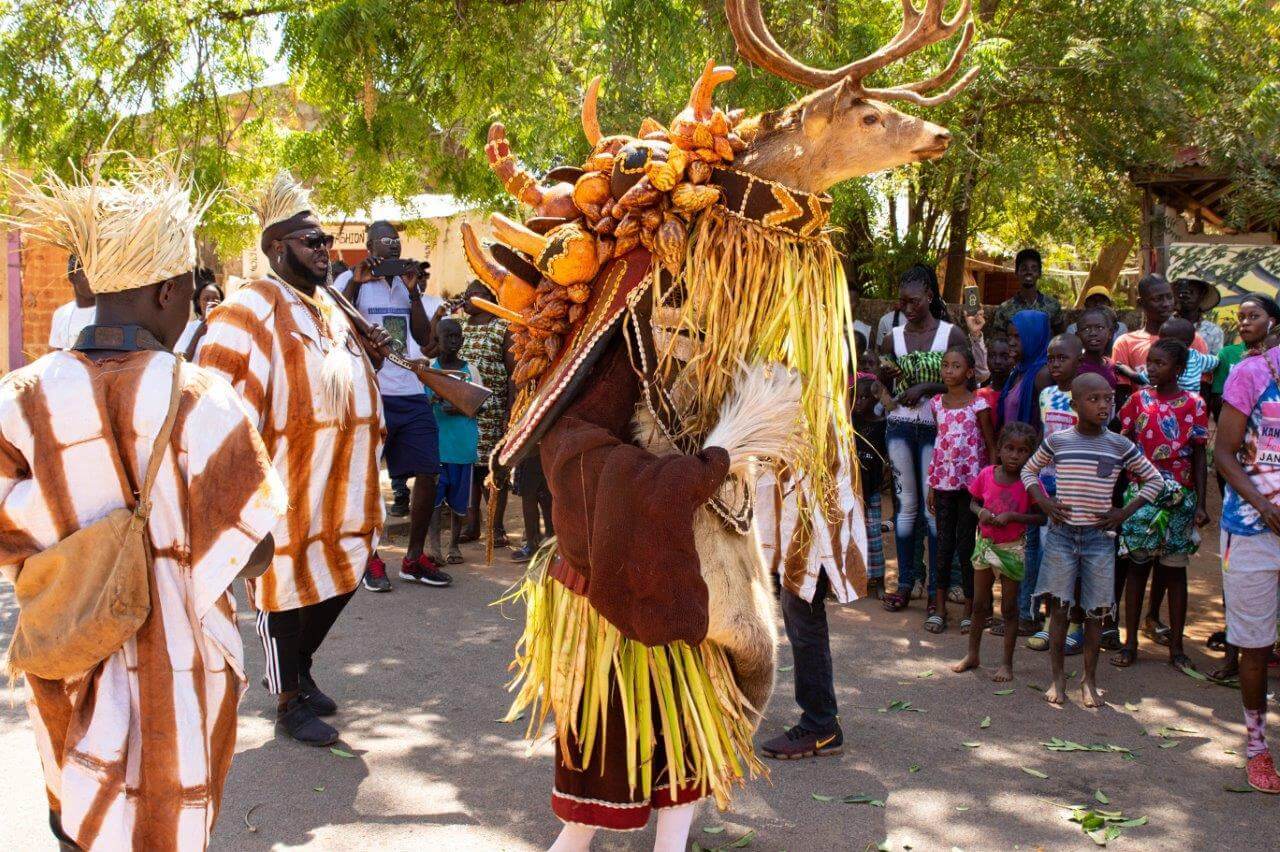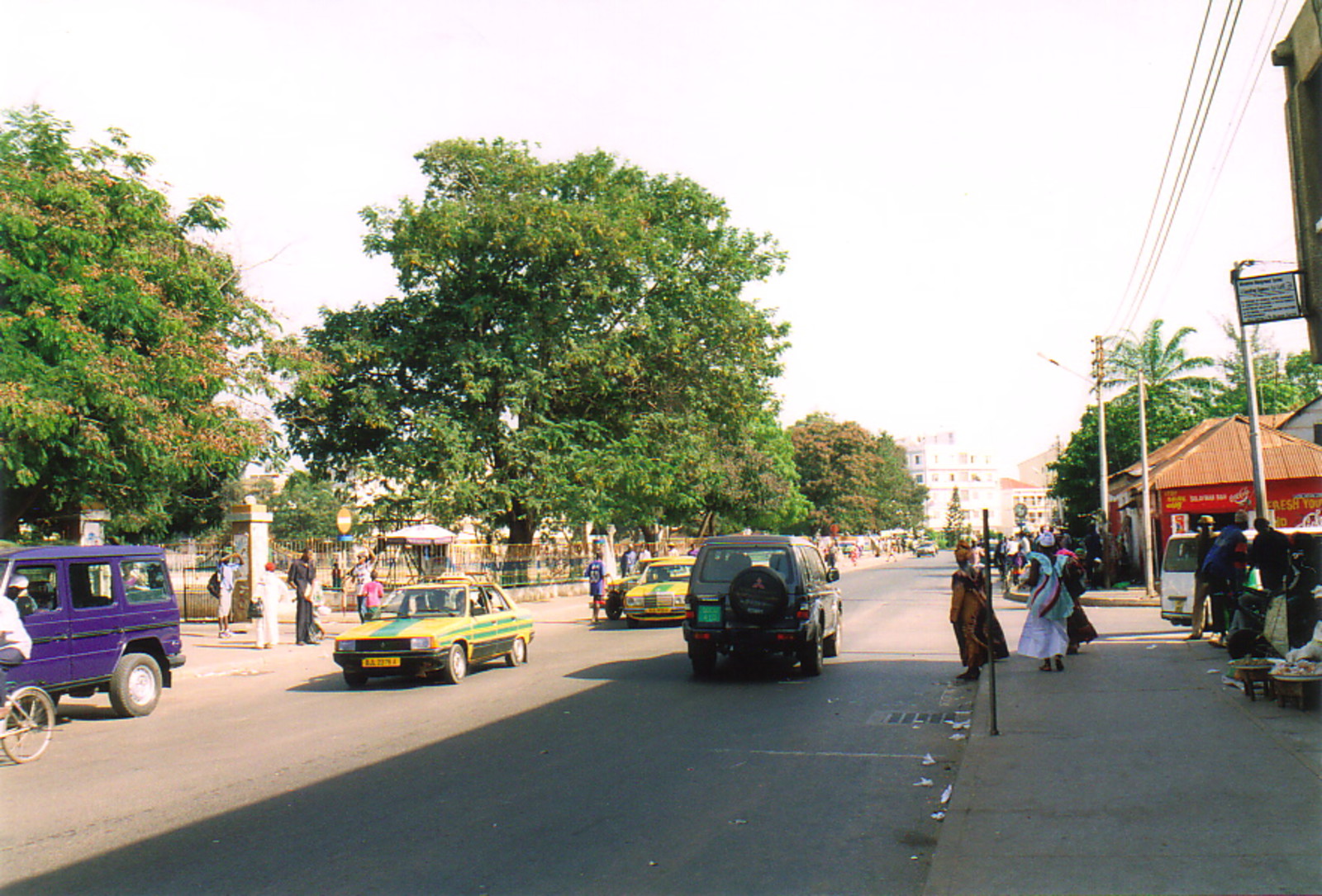Gambiaj.com – (BANJUL, The Gambia) – Some cities raise buildings; Banjul raised people. It raised us in unity—across tribes, across religions—and gave us a model of what The Gambia can still be. Lessons from Islam and Christianity, intertwined with civic values of respect, care, and dignity, reminded us that difference need not divide.
There was a time when Banjul was more than the capital of a country. It was the capital of closeness. Small in size but vast in soul, it wrapped us in a web of unwritten rules, everyday kindness, and communal rhythm. Belonging was never something you had to earn; it was the default.
I was born on Rankin Street, and though we later moved to Lancaster Street, I grew up at the heart of this island city, spending my youth at Foonen (Kent and Hill Streets) and Lusack Kunda in Picton Street.
Every corner told a story, every neighbor had a stake in your upbringing. People cared instinctively, not out of duty. Elders guided without dominance, and children listened without fear.
Our houses were small, but they opened into one another. Hidden between them were narrow passageways we called “Ports,” sandy paths that linked compounds together.
But these Ports did more than connect buildings—they connected lives. Through them, women passed food, neighbors checked on the sick, and children played freely.
The crunch of sand under bare feet, the aroma of domoda or benachin drifting through the air, the salty Atlantic breeze sweeping across the island—these were the everyday sounds and scents of home. You didn’t knock to enter a house. You coughed at the gate or softly called a name. That was enough.

Football was the city’s heartbeat. For boys like me, weekends meant Box Bar Stadium, where the air crackled with excitement and dreams were kicked into motion. I was blessed to have a close relationship with Biri Biri, the maestro whose feet made magic with the ball.
I carried his boots and kit bag with pride, walking beside him like a young apprentice shadowing a legend. He never made me feel small, even as his talent loomed large across Africa.
Biri was more than an athlete. He brought structure and discipline to the game in our schools and made football a source of identity and pride.
At Saint Joseph’s Kindergarten and Primary Schools, where I studied, he elevated the sport both on and off the pitch. I played too, proudly, though never dreaming of stardom. Wearing our school colors, we played for something bigger than ourselves.
Ironically, while Biri played for Augustinians, I was a devoted supporter of Real de Banjul, a club founded and led mainly by Banjulian Wollofs (Saloum Saloums). Yet Real was never only Wolof. It drew strong support across tribes and communities—from Vice President Sheriff Mustapha Dibba to Charbel Elhaj, Alhaji Saidy, and Pa Tangana.
Real was more than a club; it was a symbol of island pride. Its victories, heartbreaks, and parades are stitched into the rhythm of our youth.
But Banjul’s soul didn’t only dance on football fields—it wrestled in the sand. Laamb, traditional wrestling, was a sacred spectacle. Long before television, crowds gathered around makeshift arenas to cheer as men fought not just for glory but for community honor.
Heroes like Foday Dosoba, Falay Balde, Balla, Bara Bara, and Double Less were revered not only for strength but for the dignity they carried. Their battles were classrooms for us boys—teaching preparation, confidence, and respect.
And Banjul, in those days, knew nothing of tribalism. In Soldier Town—in Lancaster, Gloucester, New Perseverance, and New Primat Streets—names mattered less than values. Mandinka, Wolof, Fula, Jola, Aku, Sarahule, and Serer families lived side by side as one extended family.
Muslim and Christian homes stood shoulder to shoulder. At Christmas, Muslims joined the feasts; at Tobaski, Christians shared in the meals. The church bells of St. Augustine’s blended with the call to prayer from King Fahd Mosque. Faith didn’t divide us—it doubled our celebrations.
We shared our streets with men who would later shape the nation: Sheriff Ceesay, Amang Kanji, K.C.A. Kah, B.L.K. Sanyang, Yaya Ceesay, Sheriff Mustapha Dibba, Assan Musa Camara, Jerreh Dampha, and Kalilu Singhateh.
And then there were the uncles—my father, Ousman Njie, A.J. Senghore, Makumba Jaye, Alhaji Dawda Corr, Bunama Jagne, Alhaji Ebrima Barry, M.H. Njie, and others. They weren’t just elders of the neighborhood; they were guardians of our upbringing.
They corrected us when we strayed, guided us with quiet authority, and ensured that respect and dignity were never negotiable.
Among my playmates—Musa Njie (Koch Balla), Johnny Oliver, Abdoulie Drammeh, Assan Jeng (Lukee), J.C. Fye (Dakaan), Kebba Jobe (Dolob), Fye Singhateh (J.B.), Eddy Touray (G Pong), and Badou Senghore—friendship mattered more than tribe or religion.
Soldier Town proved daily that we lived beyond tribe, beyond religion. Like Luqman’s timeless advice to his son in the Qur’an—remain steadfast in prayer, encourage good, resist wrong, be patient in adversity, and walk humbly—we too were bound by values that transcended divisions.
Respect for elders was instinctive. You stood when they entered and listened to stories over green tea under the mango tree, because those stories carried lessons and pride. Shopkeepers knew your family before they knew your money.
A stranger in your compound was offered water without question. During hardship, neighbors helped quietly. During the celebration, food traveled from home to home, often returned with something extra in gratitude.
But slowly, the city began to change. Not all at once, but in quiet retreats. Political tension rose, the economy strained, and families moved across the bridge to the Kombos. Banjul didn’t shrink in size, but its spirit diminished.
Still, something survives. In the way we teach our children to respect elders. In the way we instinctively share before we ask. In the soft tones with which we tell stories of home. Banjul didn’t just shelter us—it shaped us.
Remembering it is not nostalgia. It is a reminder of a standard we must defend. Our city knew no tribalism. Muslim and Christian families lived side by side, guided not only by civic values of respect, generosity, and dignity, but also by the moral teachings of faith: compassion, honesty, and care for one another.
From Barra to Brikama, and from Janjanbureh to Basse, communities thrived not because people were alike, but because differences were respected and celebrated.
If Banjul once raised us as one family, so too did the rest of The Gambia. If we allow tribalism or division to grow, we betray not only our past but also our future.
The unity of Banjul must not remain nostalgia. It must be our blueprint. Just as the Ports once connected our compounds, so too must we reconnect our communities—beyond tribe, beyond religion—as Banjul once taught us.











3 Responses
What a lovely piece of nostalgic article that brings back memories and gives the living hope and happiness we are one people ,thanks
Nostalgia almost overwhelmed me! Memories of my childhood days (and nights) in Banjul, and the common interconnect of peaceful coexistence that formed most of our humane traits and tolerance and the intermarriages that resulted therefrom was a lesson that was remarkable and wonderful…
Good write up
Born in half die banjul
We had neighbors who were all different tribes religious backgrounds and even non citizens
But all lived in peace and harmony